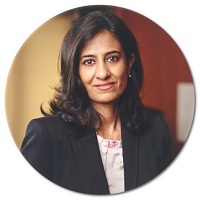Millennials value clarity and honesty, and if they experience that an effort is being made to bolster their careers, they will feel more involved and invested in driving the organisation’s growth.
What does the new-age workforce want? This is a question that is being asked by a large number of organisations in the recent past. As per a recent report by the RBI, attrition rates in India stand at 16.1% in 2019, implying that the struggle to retain talent across sectors is real.
That said, retaining modern professionals is not exactly rocket science! Employers only need to pay heed to employee expectations - stated and unstated. Here are some thumb rules that can help organisations ensure that their key talent is engaged, happy, and satisfied at work.
An employee-centric framework: Human Resource Management begins and ends with people. It is therefore important to have a flexible HR framework which places employee welfare at its heart. Policies such as taking the human element into question prior to introducing a new policy, taking employee inputs before making HR-centric decisions and accepting feedback on the existing policies must therefore be adapted. These will enable to nurture a work culture that strikes a better balance between the needs of your employees and that of your organisation.
Focus on holistic employee wellbeing: While the impact of largely-sedentary jobs on physical health is well documented, the long- and short-term effects of work-related stress are coming to light only now. Modern day professionals are amongst the most stressed among all the generations - such is the scenario that the World Health Organisation has documented it as a medical condition.
There is a growing demand from the millennial workforce to be no longer be stressed at and about work. In-house gyms, nap/meditation rooms, and recreation centres are just some ways that can enable employees alleviate the pressures of their daily workload. Regular yoga sessions could also help in effecting a better camaraderie amongst different teams and improve the mental and physical wellbeing of the employees. Organising a post-work ‘chilling’ session at frequent intervals will also bolster engagement between people from different teams, driving better results, and more proactive collaborations at the workplace.
Encouraging a work-play-life balance: At the end of the day, an organisation only desires business outcome from its employees. Hence, so long as the output is up to the mark in terms of quantity and quality, does it matter if your employees are working for 10 hours or 6 hours, of if they are working from home?
Millennials are a committed workforce, but they value personal time just as much as they push for professional excellence – and they want more trust and autonomy from their employers. When Meddius, an US-based company, adopted a results-only working environment, it witnessed significant enhancement in employee productivity and loyalty. Adopting a similarly flexible approach at your organisation might yield similar results.
Providing a purpose: Employees are not mere resources; they are people with goals, wants, and ambitions. Therefore, while most employers ask their employees what they can do for them, it would be worthwhile to ponder what the organisation can do for its workforce. It, therefore, becomes essential to map out a clear growth path for all the employees, with constructive feedback about the things they are doing right and their areas of improvement.
Millennials value clarity and honesty, and if they experience that an effort is being made to bolster their careers, they will feel more involved and invested in driving the organisation’s growth. They also love to be recognised for doing good work, so quarterly or half-yearly R&Rs might just be the right platform to motivate the top performers and boost employee morale across the board.

Is your organisation post-COVID-ready?
Trending
-
SBI General Insurance Launches Digital Health Campaign
-
CredR Rolls Out 'Life Happens' Leave For Its Employees
-
Meesho Announces 30-Week Gender-Neutral Parental Leave Policy
-
Microsoft Unveils Tech Resilience Curriculum To Foster An Inclusive Future
-
60% Indian Professionals Looking For Job Change Due To COVID: Survey
-
SpringPeople And Siemens Collaborate For Digital Transformation Push
-
86% Professionals Believe Hybrid Work Is Essential For Work Life Balance: Report
-
Almost 1 In Every 3 People's Personal Life Affected Due To Work Stress
-
Meesho Rolls Out Reset And Recharge Policy For Employees
-
80% Of Talent Leaders & Academics Say Pandemic Changed Skill Needs For Youth: Report
-
Hero Electric Rolls Out 'Hero Care' Program For Employees
-
Human Capital In Collaboration With ASSOCHAM Hosts Virtual Conference
-
IKEA India, Tata STRIVE Collaborate To Create Employability And Entrepreneurship Opportunities
-
SAP India, Microsoft Launch Tech Skilling Program for Young Women
-
DXC Technology, NASSCOM Collaborate For Employability Skills Program
-
Lenskart To Hire Over 2000 Employees Across India By 2022
-
Mindtree Launches Learn-and-Earn Program
-
Tata AIA Extends 'Raksha Ka Teeka' To Its Employees
-
Swadesh Behera Is The New CPO Of Titan
-
NetConnect Global Plans To Recruit 5000 Tech Professionals In India
-
Hubhopper Plans To Hire 60% Of Indian Podcasters By 2022
-
Corporate India Needs More Women In Leadership Roles: Report
-
Aon to Invest $30 Million and Create 10,000 Apprenticeships by 2030
-
Tech Mahindra Launches ‘Gift a Career’ Initiative for Upskilling of Youth
-
40% Women Prefer Flexible Working Options in Post-COVID World: Survey
-
3 out of 4 companies believe they can effectively hire employees virtually: Report
-
Vodafone , CGI and NASSCOM Foundation launch digital skills platform
-
Odisha: Bank, postal employees to deliver cash for elderly, differently-abled persons
-
Skill India launches AI-based digital platform for "Skilled Workforce"
-
Hiring activity declines 6.73% in first quarter: Survey
-
70% startups impacted by COVID-19 pandemic
-
Bajaj Allianz Life ropes in Santanu Banerjee as CHRO
-
Over 70 Percent MSMEs look at cutting jobs to sustain businesses
-
93 Per Cent employees stressed about returning to office post-lockdown
-
Johnson & Johnson India announces family benefits for same gender partners
-
Indian firms turning friendly towards working mothers
-
Welspun India names Rajendra Mehta as new CHRO
-
Wipro partners with NASSCOM to launch Future Skills platform



Human Capital is niche media organisation for HR and Corporate. Our aim is to create an outstanding user experience for all our clients, readers, employers and employees through inspiring, industry-leading content pieces in the form of case studies, analysis, expert reports, authored articles and blogs. We cover topics such as talent acquisition, learning and development, diversity and inclusion, leadership, compensation, recruitment and many more.
Subscribe Now









































Comment